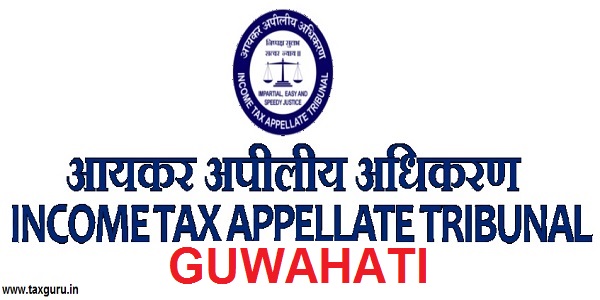Article explains What is National Savings Certificate, Limit for Investment in NSC, Tax treatment of NSC Investment and Interest on NSC, What you must ensure in respect of NSC while filing Income Tax Return, Why Non-Resident Cannot Invest in NSC, Denominations in which NSC certificates shall be issued, Where to Purchase NSC , Main Features of NSC VIII Issue, Main Features of NSC IX Issue.
Page Contents
- What is National Savings Certificate?
- Limit for Investment in NSC
- Tax treatment of NSC Investment and Interest on NSC
- What you must ensure in respect of NSC while filing Income Tax Return
- Non-Resident Cannot Invest in NSC
- Denominations in which NSC certificates shall be issued
- Where to Purchase NSC
- Main Features of NSC VIII Issue
- Main Features of NSC IX Issue
What is National Savings Certificate?
National Savings Certificate (NSC) is an Investment alternative developed by Government of India with an intention to induce persons to a saving habit and to develop National Savings. National Savings Certificate is issued through Post Offices; they are the nodal agency which makes it available to the common public.
National Saving Certificates in India is ranked as ‘highly secured’ in the class of Investments. It is an Investment’ which has Tax Advantage while (i) Investing, (ii) during the life and (iii) at the time of maturity of the Investment.
Limit for Investment in NSC
A minimum of one thousand rupees and any sum in multiples of one hundred rupees may be deposited in an account. There shall be no maximum limit for deposit in an account or in accounts held by an account holder.
Tax treatment of NSC Investment and Interest on NSC
Deposits up to Rs. 1.50 lakh in NSC qualify for Deduction Section 80C of the Income Tax Act. Accrued interest on NSC also qualifies for deduction u/s. 80C.
NSC interest is taxable. However, as it is a cumulative scheme (e.g. interest is not paid to the investor but instead accumulates in the account), each year’s interest is considered reinvested in the NSC. Since it is deemed reinvested, it qualifies for a fresh deduction under Sec 80C, thereby making it tax-free. Only the final year’s interest, when the NSC matures, does not receive a tax deduction as it does not get reinvested, but is paid back to the investor along with the interest of the earlier years and the capital amount.
What you must ensure in respect of NSC while filing Income Tax Return
To benefit from this feature of reinvested interest and its deduction, it is important to declare the accrued interest on NSC on a yearly basis in your tax return under the head “Income from Other Sources”. Under deductions, you will claim accrued interest for all the years except the last year under Sec 80C as reinvested NSC interest. Both cancel each other out, making the interest in effect tax-free.
Non-Resident Cannot Invest in NSC
Non-Resident Indians are not eligible to purchase the National Savings Certificates.
Denominations in which NSC certificates shall be issued
The National Savings Certificates (IX Issue) shall be issued in denominations of Rs. 100, Rs. 500, Rs. 1000, Rs. 5000, Rs. 10000.
Can NSC be Purchased Jointly and on behalf of minor
Types of Certificates and Issue thereof,—
(1) The certificates shall be of the following types, namely:—
(a) Single Holder Type certificates;
(b) Joint ‘A’ Type Certificates; and
(c) Joint ‘B’ Type Certificates;
(2) Detailed description of types are as under:
(a) A Single Holder Type certificate may be issued to an adult for himself or on behalf of a minor or a person of unsound mind of whom he is the guardian; or by a minor who has attained the age of ten years;
(b) A Joint A Type certificate may be issued jointly to three adults payable to both the holders jointly or to the survivor,
(c) A Joint ‘B’ Type certificate may be issued jointly to three adults payable to either of the holders or to the survivor;
Where to Purchase NSC
National Savings Certificates (NSC) are certificates issued by Department of the post, Government of India and are available at most post offices in the country. This Certificate can be transferred from a post office where it is registered to any other post office and it can be pledged as a security.
Main Features of NSC VIII Issue
- Scheme specially designed for Government employees, Businessmen and other salaried classes who are Income Tax assesses.
- No maximum limit for investment.
- No Tax deduction at source.
- Certificates can be kept as collateral security to get the loan from banks.
- Investment up to INR 1,50,000/- per annum qualifies for IT Rebate under section 80C of Income Tax Act.
- Trust and HUF cannot invest.
Main Features of NSC IX Issue
- No maximum limit for investment. Minimum Investment Rs. 100
- Available in denominations of INR. 100/-, 500/-, 1000/-, 5000/- & INR. 10,000/-.
- A single holder type certificate can be purchased by an adult for himself or on behalf of a minor or to a minor.
Buy National Savings Certificates (NSCs) every month – Re-invest on maturity and relax – On retirement, it will fetch you monthly pension as the NSC matures.
(Republished with Amendments)





















